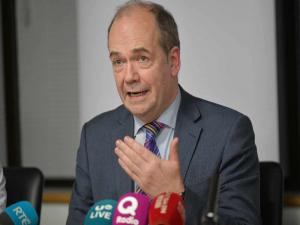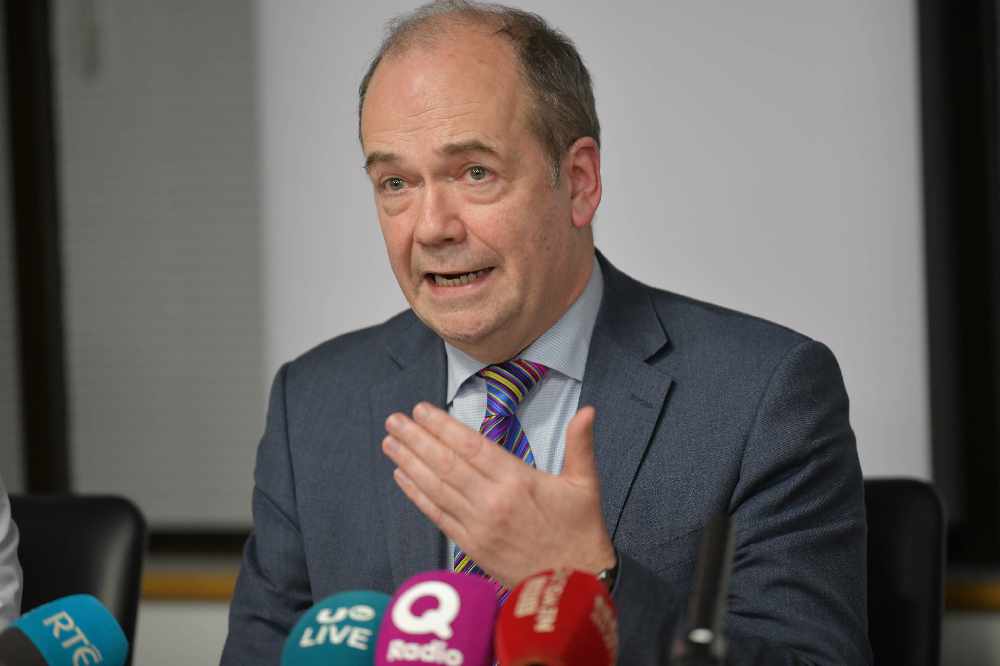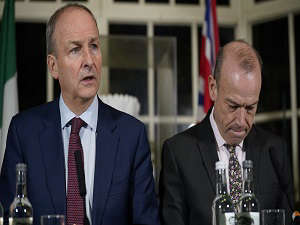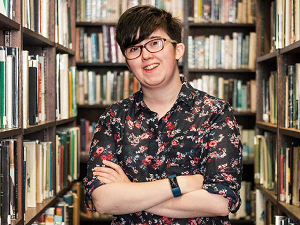
By PA
Northern Ireland's chief medical officer insists he is basing his advice on the same evidence as other chief medical officers across the UK.
Dr Michael McBride says it was the Scientific Advisory Group for Emergencies (Sage) that warned schools returning will increase the R number of the virus and could potentially push it above 1.
He insisted he and England’s chief medical officer Professor Chris Whitty had not adopted contrary positions, and said any difference in approach was a consequence of elected ministers in UK regions opting for different strategies.
“I don’t think that there’s any difference of position in relation to the chief medical officers,” Dr McBride said.
“I think that the evidence is clear and what we have is ministers making different decisions in different jurisdictions which, absolutely, they’re entitled to do, so I don’t think it would be accurate to present this as a chief medical officer of one jurisdiction saying one thing and a chief medical officer in another saying another – we provide advice and ministers make decisions.”
The CMO warned that a rush out of lockdown could prompt the worst wave of Covid-19 yet.

“There is a significant risk at this point in time if we move back from the current restrictions too quickly or too rapidly that we will see a resurgence in cases and that could result in a further wave of infection which could be even greater than the numbers we saw back in January,” he said.
“And that’s why it’s very important that the decisions by the Executive in terms of returning to a degree of normality are carefully taken informed by all of the evidence and one step at a time.”
Three confirmed cases of the South African variant of #COVID19 have been detected in Northern Ireland.
— Department of Health (@healthdpt) February 23, 2021
➡️https://t.co/tJt9g9u7vv pic.twitter.com/cDs3o6CLUf
It comes as three cases of the South African variant are discovered in Northern Ireland which is the first time the mutation has been identified here.
Dr McBride reiterated his view that some form of Covid-19 preventative measures – such as the wearing of face masks – would continue to be required for some time to come after other restrictions are lifted.
On schools, he said the evidence showed that children do play a role in household transmission of the virus.
“That’s less likely for children under the age of 12, more likely for children over the age of 12, so the impact of returning primary schools is less than the impact of a return of children in secondary school,” he said.
The chief medical officer said the uncertainty around school returns was compounded by the Kent variant of Covid-19, which he said was 50% more transmissible.
“Therefore it is important that in a return to school that is phased and planned in a way in a stepwise process, so that at each phase we can estimate the impact and ensure that we can keep community transmission down, the R number down, before we then open up the next phase of return to school,” he added.
“And then that way we will get schools back in a sustainable way.
''I think the worst thing would be that we have children all back in school potentially and then see a very significant rise in community transmission, and that puts the whole thing back again.”


 UK and Irish ministers to meet amid row over migration
UK and Irish ministers to meet amid row over migration
 Three men set to go on trial for murder of journalist Lyra McKee
Three men set to go on trial for murder of journalist Lyra McKee
 Swann refuses to rule out resigning if budget is not changed
Swann refuses to rule out resigning if budget is not changed
 Fresh inquests ordered into deaths of 15 killed in McGurk’s bomb blast
Fresh inquests ordered into deaths of 15 killed in McGurk’s bomb blast